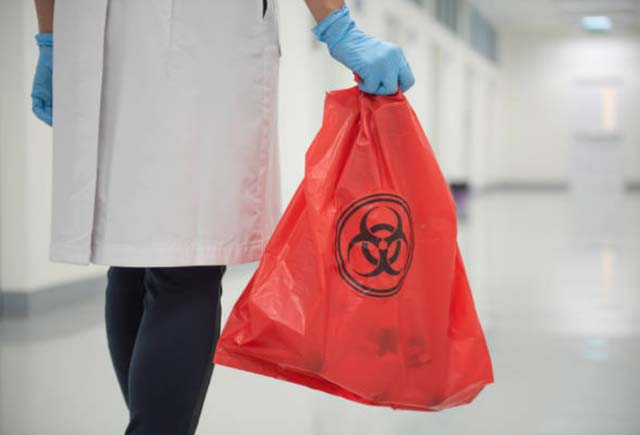Introduction
In the field of healthcare, ensuring proper disposal of medical waste is crucial for public safety and environmental protection. Compliance with regulations and guidelines related to medical waste disposal is essential to prevent the spread of diseases, reduce environmental impact, and maintain the reputation and trust of healthcare facilities. In this article, we will explore the importance of compliance in medical waste disposal, focusing on expert insights from New York. We will delve into the best waste management service in NY, hazardous waste disposal service in New York, New York medical waste disposal, pharmaceutical waste management, and medical waste disposal and compliance services.
The Importance of Compliance in Medical Waste Disposal: Expert Insights from New York
Medical waste poses significant risks to public health if not properly handled and disposed of. Compliance with regulations ensures that healthcare facilities adhere to strict standards set by authorities to mitigate these risks effectively. In New York, where the population density is high and healthcare facilities are abundant, compliance becomes even more critical.
The Impact of Non-compliance on Public Health
Improper handling and disposal of medical waste can lead to the transmission of infectious diseases among healthcare workers, patients, and the general public. Exposure to biohazardous materials like needles or contaminated sharps can result in serious injuries or infections. Non-compliance increases the likelihood of environmental contamination through improper disposal practices such as dumping or incineration.Best Waste Management Service in NY: Ensuring Compliance
Finding the best waste management service in NY is essential for healthcare facilities to ensure compliance with regulations. These services specialize in collecting, transporting, treating, and disposing of medical waste according to industry standards. They play a crucial role in maintaining public health and safety.
Factors to Consider When Choosing a Waste Management Service
Accreditation: Look for a service provider that is accredited by recognized organizations such as the Occupational Safety and Health Administration (OSHA) and the Environmental Protection Agency (EPA). Experience: Opt for a company with extensive experience in medical waste management to ensure expertise and adherence to regulations. Compliance Training: Ensure that the service provider offers compliance training for healthcare staff to promote proper waste segregation and handling practices. Disposal Methods: Inquire about the disposal methods used by the waste management service. It should align with environmentally friendly practices, such as recycling or sterilization.Hazardous Waste Disposal Service New York: Addressing Specialized Needs
Apart from regular medical waste, healthcare facilities often generate hazardous waste, which requires specialized disposal services. Hazardous waste includes chemicals, pharmaceuticals, radioactive materials, and other substances that pose significant risks to public health and the environment if not handled properly.
Importance of Proper Hazardous Waste Disposal
Preventing Pollution: Proper disposal of hazardous waste prevents soil, water, and air pollution, safeguarding both human and environmental health. Legal Compliance: Healthcare facilities must comply with federal, state, and local regulations when it comes to hazardous waste management to avoid penalties or legal repercussions. Mitigating Risks: Hazardous waste can cause severe health issues if not managed correctly. Compliance with disposal guidelines ensures that these risks are minimized.New York Medical Waste Disposal: Meeting Regulatory Standards
New York has specific regulations governing medical waste disposal to protect public health and maintain a clean environment. Healthcare facilities must adhere to these standards to operate legally and ensure safe handling and disposal of medical waste.
Key Requirements for Medical Waste Disposal in New York
Segregation: Proper segregation of medical waste is essential to prevent cross-contamination and ensure safe handling throughout the disposal process. Packaging: Medical waste must be packaged in leak-proof containers that meet specific criteria outlined by regulatory authorities. Transportation: Healthcare facilities must use authorized transportation services that comply with regulations to transport medical waste safely. Treatment and Disposal: Medical waste must undergo appropriate treatment methods, such as autoclaving, incineration, or chemical treatment, before final disposal. Pharmaceutical WastePharmaceutical Waste Management: A Critical Aspect of Compliance
Pharmaceutical waste, including expired medications and unused drugs, requires specialized management due to its potential impact on public health and the environment. Proper pharmaceutical waste management is crucial to prevent drug diversion, accidental ingestion, and environmental contamination.
Compliance Measures for Pharmaceutical Waste Management
Inventory Control: Healthcare facilities should establish strict inventory control systems to minimize pharmaceutical waste generation. Return Programs: Participating in return programs organized by pharmaceutical manufacturers or authorized entities ensures safe disposal of expired or unused medications. Staff Training: Educating healthcare staff about proper pharmaceutical waste segregation and disposal practices is essential for compliance. Regulatory Compliance: Healthcare facilities must stay updated with federal and state regulations governing pharmaceutical waste management.Medical Waste Disposal and Compliance Services: Meeting Industry Standards
To ensure compliance with medical waste disposal regulations, healthcare facilities can rely on professional services specializing in both waste management and compliance. These services offer comprehensive solutions to address the unique needs of healthcare facilities while adhering to regulatory requirements.
How Medical Waste Disposal and Compliance Services Help
Compliance Audits: Professional services conduct compliance audits to assess healthcare facility practices and identify areas that need improvement. Training Programs: They provide training programs tailored to the specific needs of healthcare staff, promoting compliance with proper handling and segregation practices. Documentation Support: These services assist healthcare facilities in maintaining accurate records related to medical waste disposal, ensuring compliance with record-keeping requirements. Regulatory Updates: Medical waste disposal and compliance services keep healthcare facilities informed about any changes in regulations to ensure ongoing compliance.FAQs
Q: What are the consequences of non-compliance in medical waste disposal? A: Non-compliance can lead to the spread of infectious diseases, injuries from sharps, and environmental contamination.
Q: How can healthcare facilities ensure compliance in medical waste disposal? A: Healthcare facilities can ensure compliance by partnering with accredited waste management services, providing staff training, and following regulatory guidelines.
Q: Why is proper hazardous waste disposal crucial? A: Proper hazardous waste disposal prevents pollution, ensures legal compliance, and mitigates health risks associated with hazardous materials.
Q: What are the key requirements for medical waste disposal in New York? A: Key requirements include proper segregation, packaging, transportation, and treatment methods conforming to New York's regulations.
Q: How should healthcare facilities manage pharmaceutical waste? A: Healthcare facilities should establish inventory control systems, participate in return programs, provide staff training, and comply with pharmaceutical waste management regulations.
Q: How do medical waste disposal and compliance services assist healthcare facilities? A: These services conduct compliance audits, offer training programs, provide documentation support, and keep healthcare facilities updated on regulatory changes.
Conclusion
Compliance with regulations governing medical waste disposal is of utmost importance for healthcare facilities in New York. It ensures public health and safety while protecting the environment from contamination. By partnering with the best waste management service in NY and availing specialized hazardous waste disposal services, healthcare facilities can meet these compliance requirements effectively. Moreover, adhering to specific regulations for New York medical waste disposal and implementing proper pharmaceutical waste management practices further establishes trust and demonstrates a commitment to public health. Medical waste disposal and compliance services play a vital role in assisting healthcare facilities throughout this process by offering expertise, guidance, and ongoing support to maintain compliance standards.

